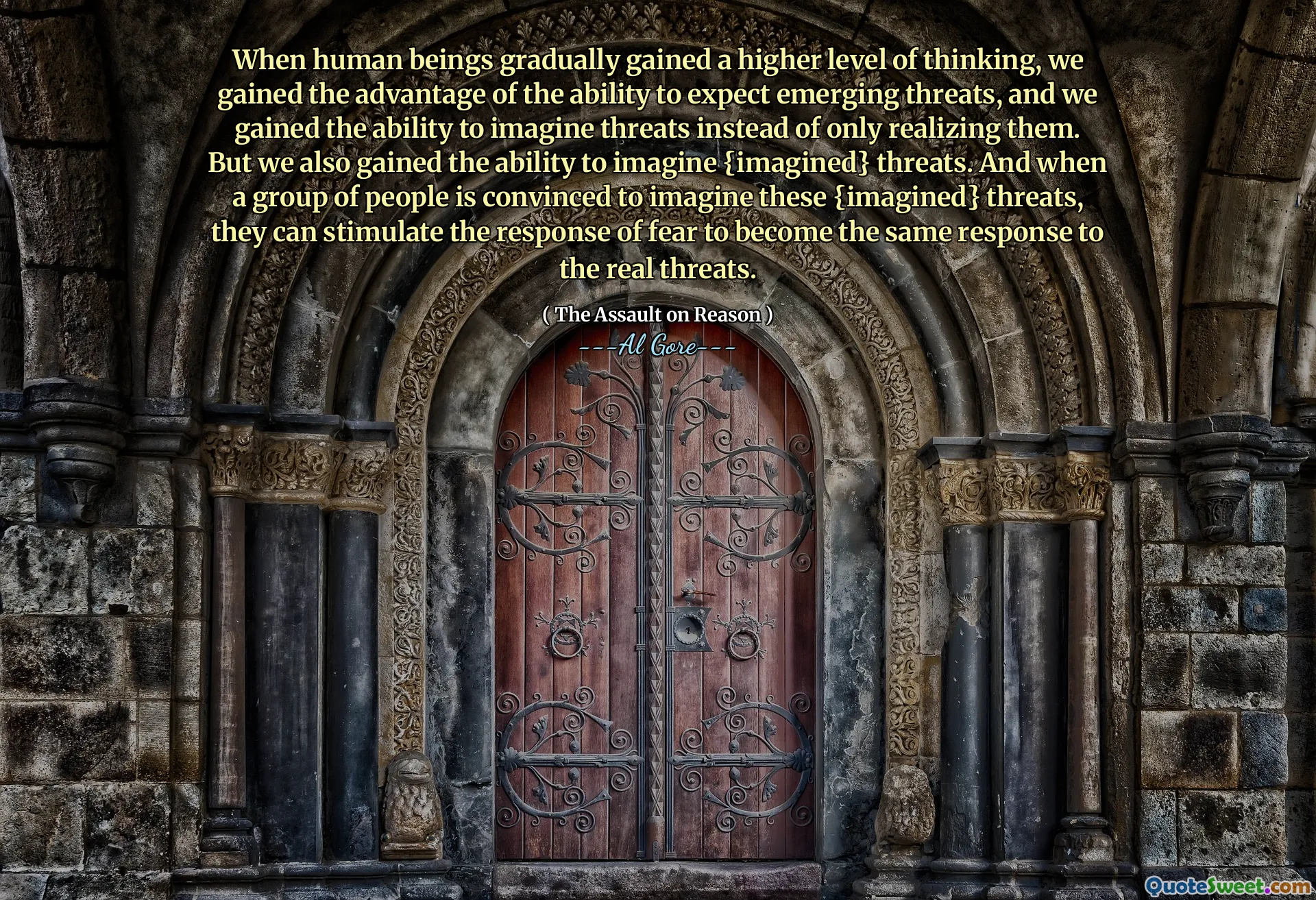
When human beings gradually gained a higher level of thinking, we gained the advantage of the ability to expect emerging threats, and we gained the ability to imagine threats instead of only realizing them. But we also gained the ability to imagine {imagined} threats. And when a group of people is convinced to imagine these {imagined} threats, they can stimulate the response of fear to become the same response to the real threats.
As human beings advanced their cognitive abilities, they developed a significant advantage in anticipating potential dangers and threats, transcending merely responding to threats as they arose. This evolution allowed people to not only recognize real threats but also to conceive of imagined dangers, fostering a climate of heightened awareness and caution.
However, this capacity to envision threats can lead to a troubling phenomenon where fear responses to imagined dangers can become indistinguishable from those directed at actual threats. When a collective adopts fears based on imagination, they may react with similar intensity to both real and fictitious dangers, potentially distorting rational responses and promoting unwarranted anxiety, as discussed by Al Gore in "The Assault on Reason."











